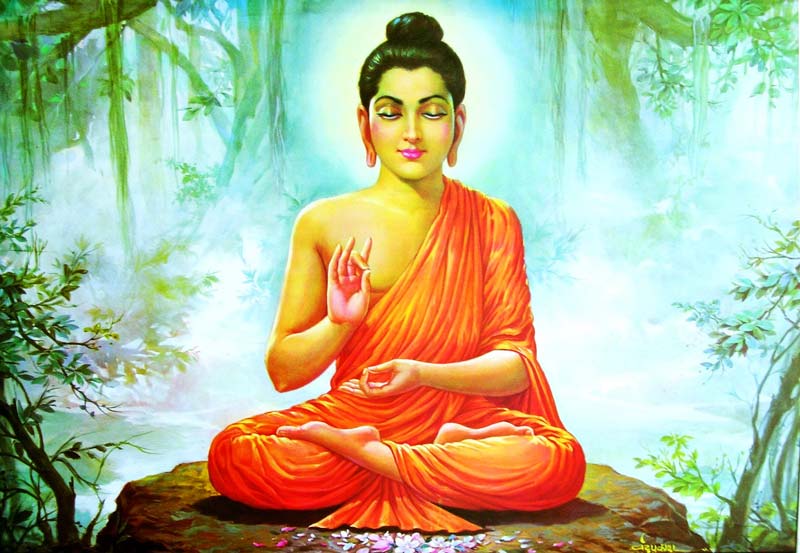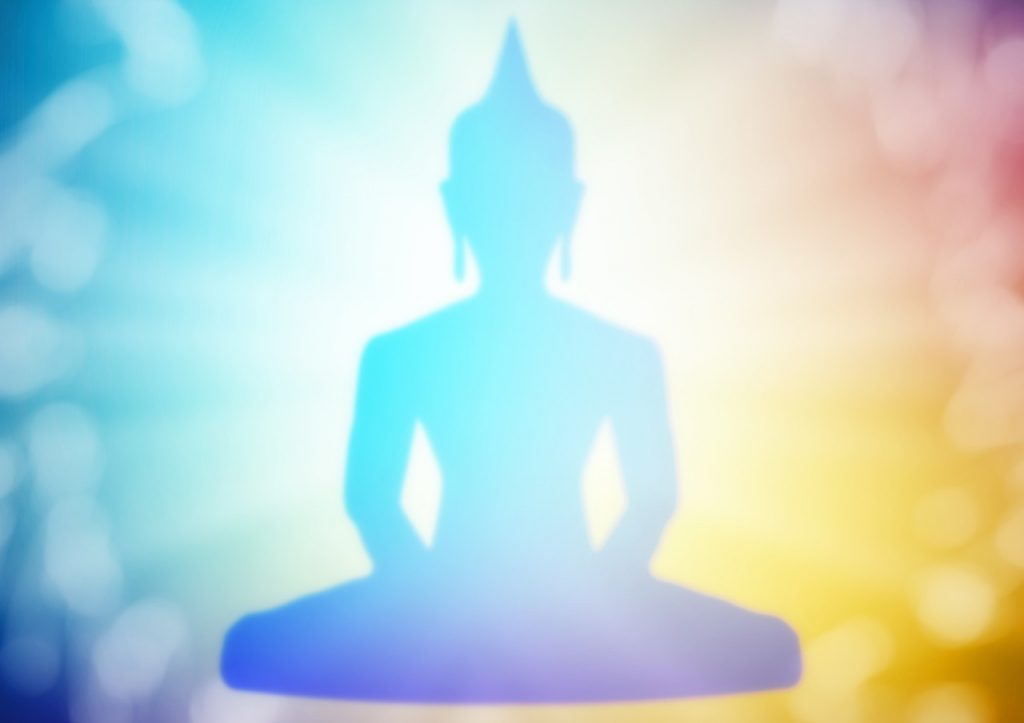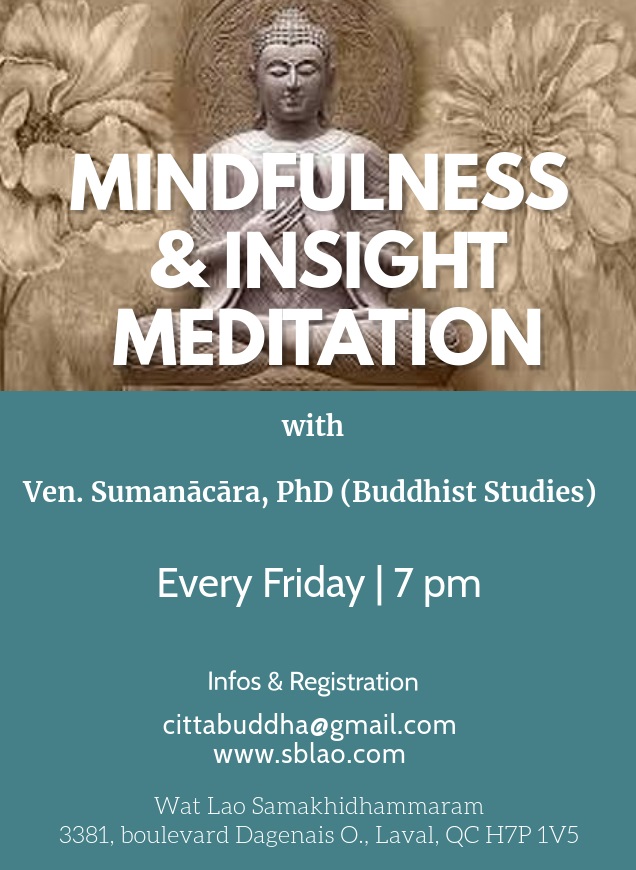NOTRE Projets
Introduction to Buddhist Meditation
Introduction to Buddhist Meditation
Buddhist meditation is the way to calm one’s mind according to Buddhist teaching. It is trying to set one mind on one-pointedness, it is also the way to control one self and to concentrate the mind. it is the way to purity the mind from unwholesome thoughts such as hatred, selfish desire, greed, ignorance or mental defilement’s or impurities of the mind, In short, meditation is the way to purify mind from hatred, greed, and ignorance
In Buddhism, the mind is of primary importance, It is the most important element in the human being. All deeds, wholesome or unwholesome, are the result of processed of the mind, That is why the Buddha has repeatedly proclaimed that the mind is the forerunner of all actions, the chief of all things, Therefore, the mind should be trained and refined, Meditation helps train and refine the mind, it helps the person who does meditation practice to be mindful at all times of living, Meditation helps everyone at all times to live and work effectively and successfully.
There are two kinds of Meditation: Concentration Meditation (Samatha Bhavana) and Insight Meditation (Vipassana Bhavana).
Concentration Meditation is try to set your mind on one-pointeness or focusing your mind on one subject, It is developed by fixing the mind on a chosen object such as the image of the Buddha or some images, Once we focus our mind on the object for a period of time, The mind will temporarily becomes calm. Anger, worry, restlessness, lust doubt are temporarily disappeared or suppressed.

Insight Meditation, it is endeavor to achieve complete insight into re reality of nature of all phenomena, It is realization of underrating all things as they really are.
There are a lot of benefits of meditation; When we meditation, It helps to clam our minds, meditation can strengthen our minds and enable us to face all kinds of problems and difficulties in daily life with confidence, and it also helps us to concentrate better by sharpening our mental faculties.
It frees us from all kinds of stress, worries an anxieties,. It improves our mental and physical health, It helps develop a sound mind in a sound body, Meditation helps in cleansing our minds of impurities. It cultivates in our minds loving-kindness compassion, inner peace, and humility, It prevent us from attaching to hatred, greed, passion, selfishness, jealousy, and so on
These are the benefits of Buddhist meditation, both in our spiritual life and in worldly endeavors.

Vipassana “Vippassana meditation is a systematic method of cultivation mindfulness of Body, Feeling, Consciousness and Dhamma (The Teaching or mental Construct) ”Vipassana meditation leads to purification of mind, to overcoming grief and sorrow, to overcoming pain and suffering, to treading the path leading to liberation. When the full moon day arrived, the Buddha, seated under the open sky, looked over the assembly and said: O followers of the way, the method of being fully aware of breathing, if developed and practiced continuously, will have great rewards and bring great advantages, It will lead to success in the practice of the seven Factors of Awakening. The Seven Factors of Awakening, if developed and practiced continuously, will give rise to Understanding and Liberation of the Mind. What is the way to develop and practice continuously the method of Full Awareness of Breathing so that the practice will be rewarding and offer great benefit?. It is like this, the practitioner goes into the forest or to the foot of a tree, or to any deserted place, and sits stable in the cross-legged position, holding ones body quite straight, Breathing in, One knows that one is breathing in; and breathing out, one knows that one is breathing out. Breathing in a long breath, one knows, I am breathing in a long breath, Breathing out a long breath, one knows I am breathing out a long breath. Breathing in a short breath, one knows, I am breathing in a short breath, Breathing out a short breath, one know I am breathing out a short breath.
|
Vipassana
I am breathing in and am aware of my whole body, I am breathing out and am aware of my whole body This is how one practices. I am breathing in and making my whole body calm and at peace, I am breathing out and making my whole body calm and at peace, This is how one practices. I am breathing in and feeling joyful. I am breathing out and feeling joyful, This is how one practices. I am breathing in and feeling happy, I am breathing out and feeling happy, One practices like this. I am breathing in and aware of the activities of the mind in me, I am breathing out and am aware of the activities of the mind in me. One practices like this. I am breathing in and making the activities of the mind in me calm and at peace, I am breathing out and making the activities of the mind in me calm and at peace, One practices like this. I am breathing in and am aware of my mind, I am breathing out and am aware of my mind, One practices like this. I am breathing in and making my mind happy and at peace, I am breathing out and making my mind happy and at peace, One practices like this. I am breathing in and concentration my mind, I am breathing out and concentration my mind, One practices like this. I am breathing in and liberation my mind, I am breathing out and liberation my mind, One practices like this. I am breathing in and observing the impermanent nature of all dharmas, I am breathing out and observing the impermanent nature of all dharmas, One practices like this I am breathing in and observing the fading of all dharmas, I am breathing out and observing the fading of all dharmas, One practices like this. I am breathing in and contemplation liberation, I am breathing out and contemplation liberation, One practices like this. I am breathing in and contemplation letting go, I am breathing out and contemplation letting go, One practices like this. The Full Awareness of Breathing, if developed and practiced continuously according to these instructions, will be rewarding and of great benefit. |
NIRVANA
This is the state where all human defilement and passion have been completely extinguished, An absolute extinction of that life-affirming will manifested as Greed, Hate and Delusion, and convulsively clinging to existence; and therewith also the ultimate and absolute deliverance from all future rebirth, old age, disease and death, from all suffering and misery and through certain practices and meditation based upon Right Wisdom, and It is the highest and ultimate goal of all Buddhist aspirations. Those who had attained this state are called Buddha’s
Extinction of greed, Extinction of hate, Extinction of delusion: This is called Nibbana
Gautama Siddhartha had attained this state and became a Buddha at 35. However, it is now believed that it was only after he had passed away that he reached such a state of perfect tranquility, because some residue of human defilement would continue to exist as long as his physical body existed


